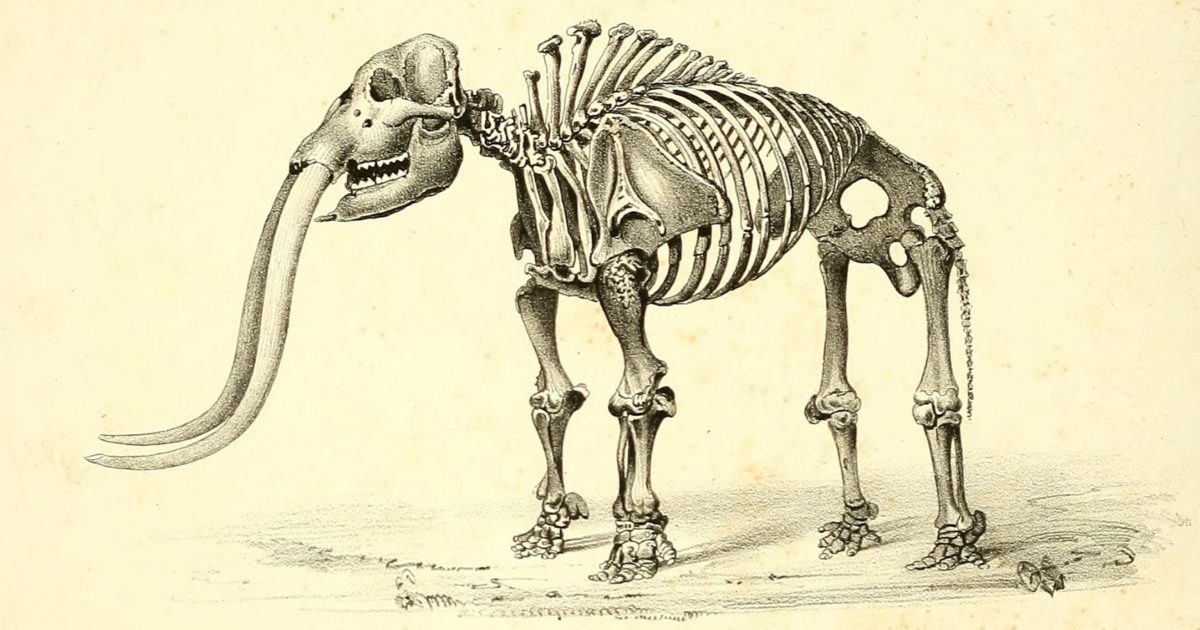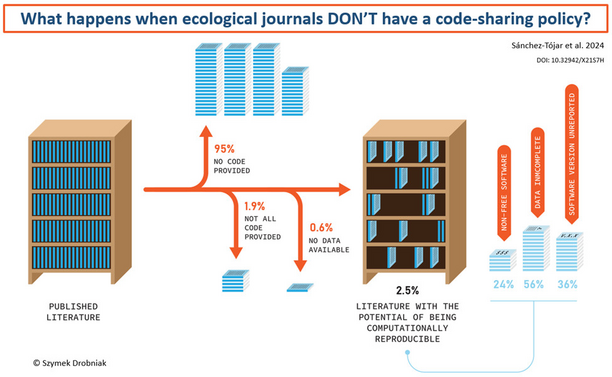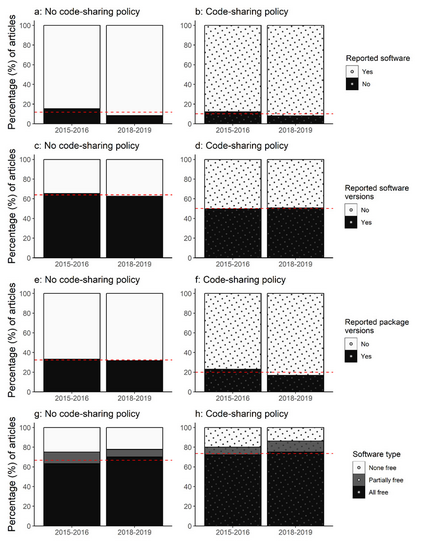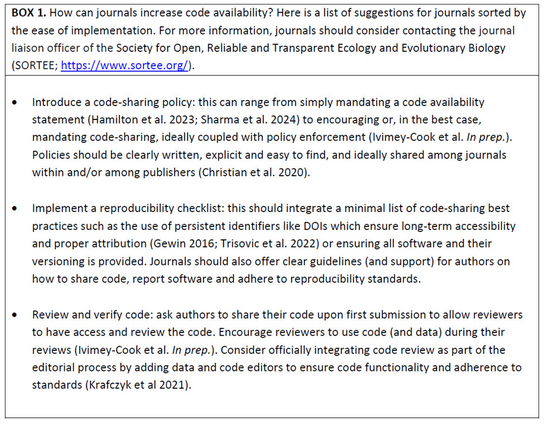Recent searches
Search options
In 2020, we showed that studies published in ecological journals WITH a code-sharing policy showed a 21% reproducibility potential at max (Culina et al 2020, @PLOSBiology )
We've now investigated journals WITHOUT a code-sharing policy. The results are worrying.
To compare our results to those of Culina et al. (2020: https://doi.org/10.32942/X21S7H), we:
1. Selected 12 ecological journals without a code-sharing policy between 2015 and 2019
2. Assessed code- and data-sharing as well as software reporting for 314 nonmolecular studies published between 2015 and 2019
We show that despite the low policy compliance found by Culina et al. (2020), code- and data-sharing are much higher in journals WITH than WITHOUT a code-sharing policy:
1. Code-sharing: 27% (policy) vs 5% (no policy)
2. Data-sharing: 79% (policy) vs 37% (no policy)
Indeed, the reproducibility potential of ecological findings in journals WITHOUT a code-sharing policy is 2.5% at most!
That’s 8 times lower than in journals WITH a code-sharing policy.
We also looked into software (reporting) predictors of reproducibility and found much room for improvement. Given how easy it should be to fix these, authors, journals and founders should immediately tackle these problems.
In all, our results suggest that implementing a code-sharing policy likely increases reproducibility potential, even when the mechanisms for enforcing policy compliance are lacking.
Here are some suggestions for journals.
For more, check: https://doi.org/10.32942/X21S7H
We tried to provide an “exhaustive mini-review” of the topic covering different topics and suggestions from ecology, evolution and beyond in an attempt to provide resources for authors, journals and funders.
Check https://doi.org/10.32942/X21S7H
All data & code available at: https://github.com/ASanchez-Tojar/code




